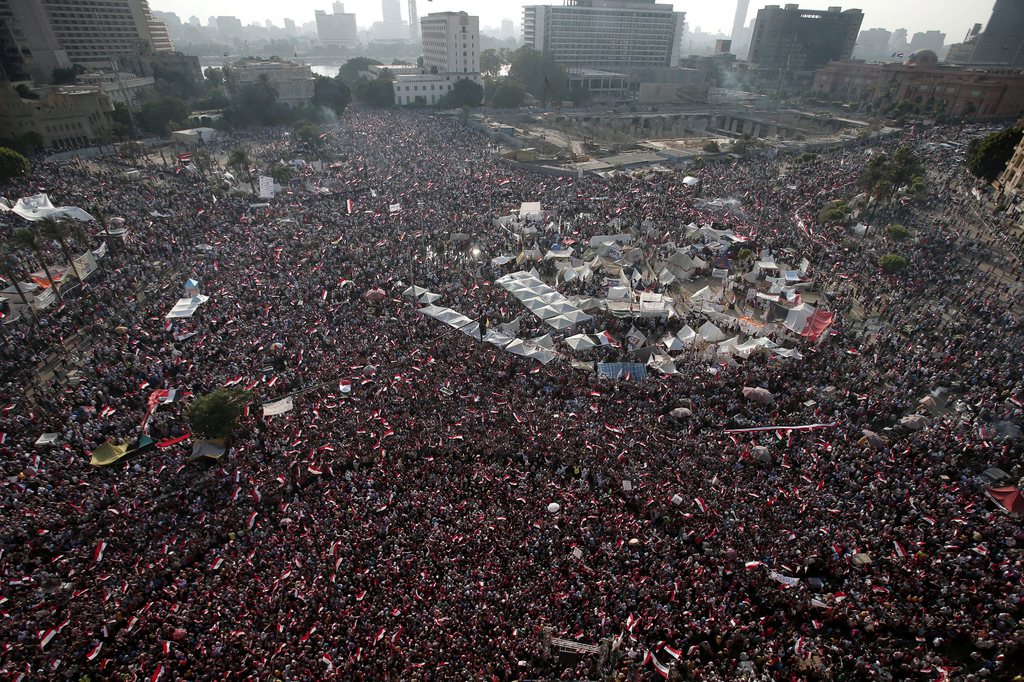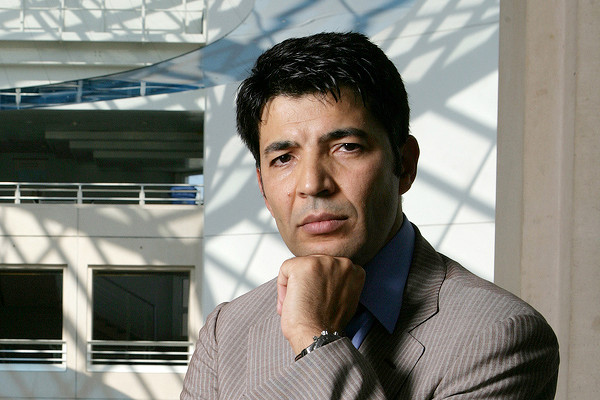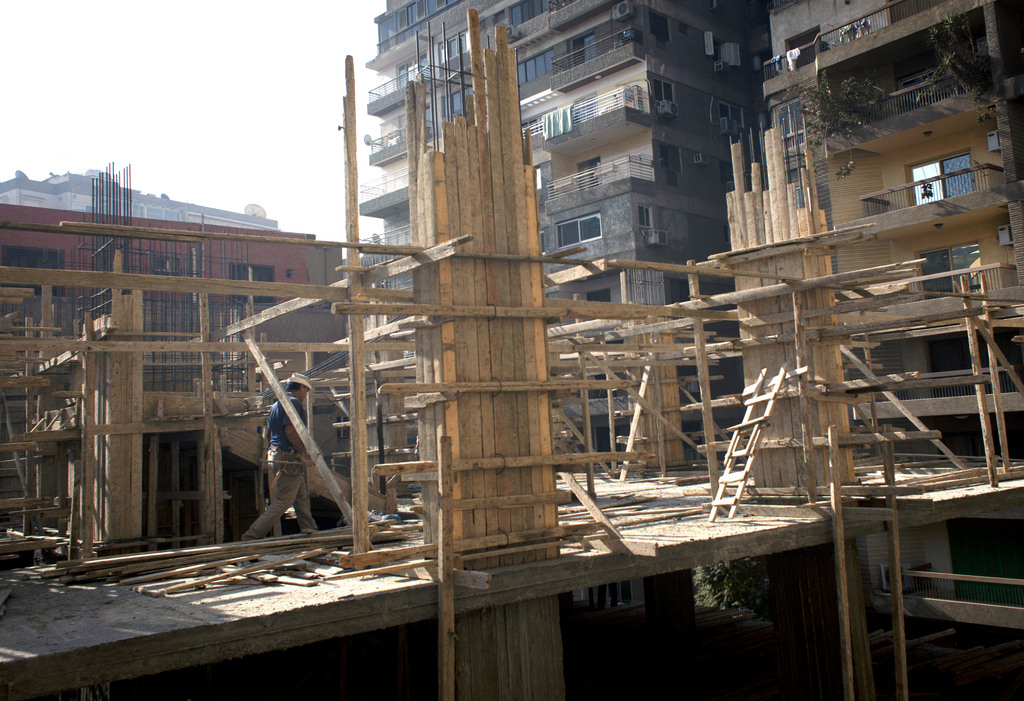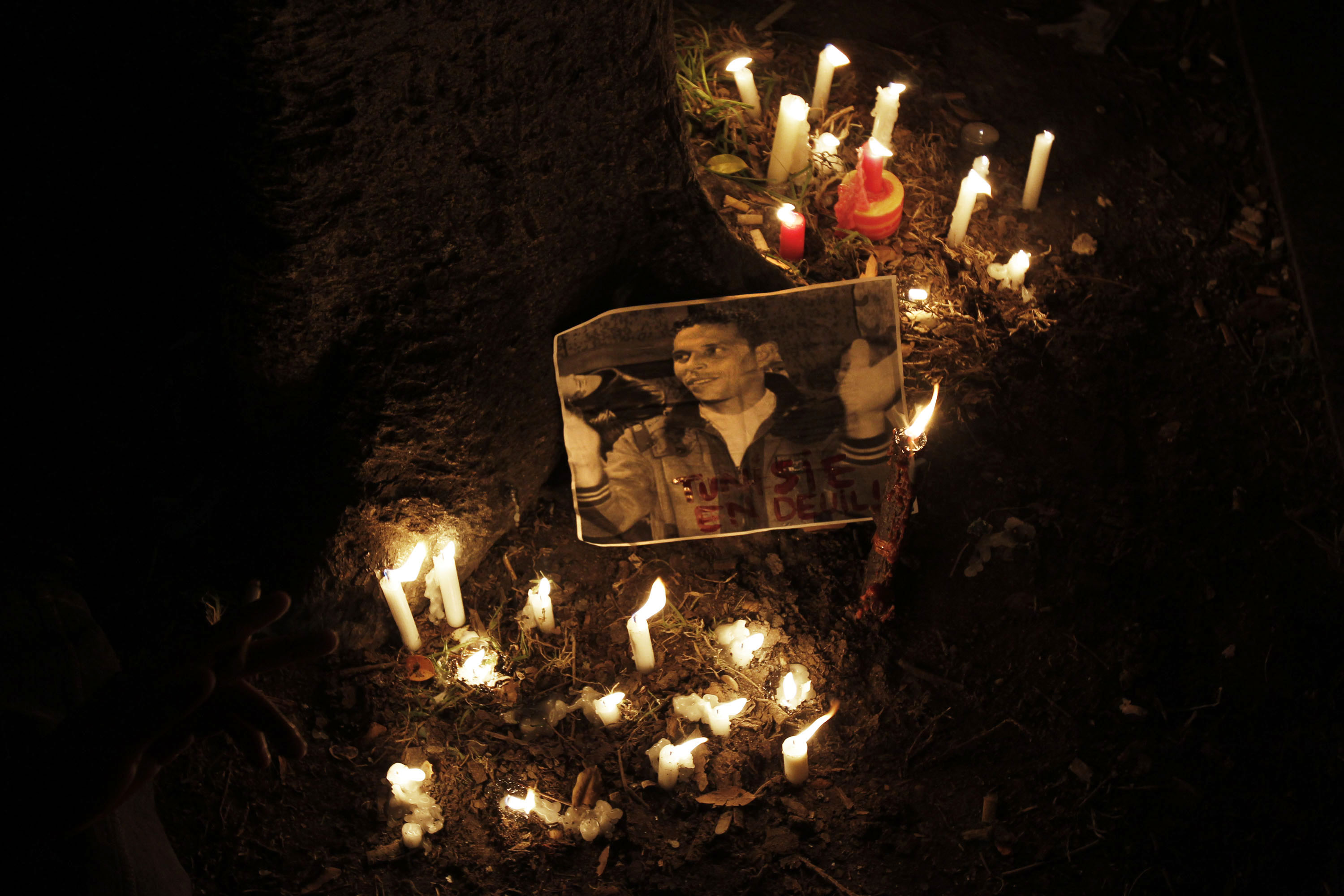Egyptian revolution faces fresh challenges

Calm may have returned to Cairo after President Mohamed Mursi's downfall after days of mass protests, but Geneva-based political expert Hasni Abidi warns the transition period could be difficult for those now in power.
Mursi’s dramatic but essentially bloodless removal by the army a year after being democratically elected marked another twist in the turmoil that has gripped the Arab world’s most populous country in the two years since the fall of Hosni Mubarak.
The United Nations, the United States and other world powers did not condemn Mursi’s removal as a military coup, which was watched and commented on around the world as it unfolded.
Army intervention was backed by millions of Egyptians, including liberal leaders and religious figures who expect new elections under a revised set of rules.
Abidi, director of the Study and Research Center for the Arab and Mediterranean World, says that the country’s interim leadership will now have to balance competing interests.

swissinfo.ch : How do you analyse this coup that was followed live around the world ?
Hasni Abidi: We saw the most tweeted, the most connected coup ever in history. It also provides us with another vision of democracy. Our view from Europe is not the same as that of the Egyptians demonstrating. You cannot blame them for supporting a coup. They believe that calling on the army to topple an elected representative will help resurrect the revolution of January 24, 2011.
So we what we saw was two perceptions colliding. But it was also a collision between the only two institutions that exist in Egypt, the army and the Islamists.
swissinfo.ch: This coup seems a lot like what happened in Algeria in the early 1990s. The Algerian armed forces brutally stopped the democratic process, which was seen to favour the Islamic Salvation Front.
H.A.: The Egyptian army has learned from the Algerian experience and tried to avoid some pitfalls. The army organised for example on Wednesday a press conference in the presence of legislators, civil society representatives, members of some political parties, as well as dignitaries from the Al-Azhar University – the supreme Sunni authority in Egypt – and not forgetting representatives of the Christian Copt community.
The army is well aware that religion is still the main point of reference for most people in Egypt, that Egyptian society remains conservative despite the movement asking for a lay society and an end to the Muslim Brotherhood’s government. The army is trying not to appear as though it has carried out a coup like was the case in Algeria.
The Swiss foreign ministry has urged all sides in Egypt to seek political solutions to the crisis and to avoid a further escalation of violence, according to a statement issued on Thursday.
Switzerland noted “with concern” that the Egyptian constitution had been suspended and that the president was removed from office by the Egyptian armed forces.
“Switzerland expects to see a swift return to democracy in which all the social forces in the country are involved and in which fundamental human rights are respected,” the ministry said.
Switzerland “expresses the hope that a peaceful solution can be found to the current political polarisation in Egypt and it calls on all sides to renounce the use of violence”.
The ministry recommends that tourists should limit themselves to the seaside resorts on the Red Sea and to tourist centres in Upper Egypt. Caution should be exercised and demonstrations and large gatherings of any kind should be avoided.
Switzerland will keep on supporting democratic change in Egypt, the ministry said in additional comments to the Swiss news agency. The government has set aside SFr30 million ($31 million) to that effect to be paid yearly until 2016. It is important to stay involved even if the situation is fragile, the ministry said.
swissinfo.ch: So the Egyptian army doesn’t want to run the country?
H.A.: The army doesn’t have the means to manage a difficult transition with an economic and political situation that is like a dead end. The army still benefits from some sympathy, even though it lost a lot of goodwill when Hosni Mubarak was forced out of power.
It is also not a republican army like Turkey’s. It is an institution that is a reflection of Egyptian society itself, with its many components. Mubarak did all he could over a 40-year period to eliminate politics from the armed forces, to create a purely defensive army with political aims.
That said, the armed forces also want to defend their business interests, equivalent to 20 to 30 per cent of the country’s economy and finance sector. This has to be one of the motivating factors behind the coup: saving those economic interests from the Muslim Brotherhood.
swissinfo.ch: How do you see the transition playing out?
H.A.: What is reassuring are the profiles of the people who are emerging. The coordinator of the National Salvation Front, Mohamed El Baradeï, is a reassuring figure who has always been coherent and followed the same line. After Mubarak was ousted, he called for an orderly transition, with a constitutional assembly and elections organised by an interim council, something the army failed to do.
The interim head of state, Adli Mansour, is a legal specialist who had just been named president of the constitutional court. He will have to manage a transition that is taking place because the constitution he was supposed to uphold has been struck down.
Egypt needs a government of technocrats that can manage the country’s economic and security situation and get it back on its feet. This will be difficult especially because the new head of state must respect the calendar set out for the next presidential elections, avoid botching the new constitution and draw on the strengths of all the country’s political forces. In other words, he must meet the army’s expectations and deal with the Islamic movement at the same time.
swissinfo.ch: How much room for manoeuvre does the Muslim Brotherhood still have?
H.A.: They have taken a heavy hit. They believed until the last minute that the constitutional order would be respected. With the army’s intervention, chances are that the divisions within the movement will become even more apparent: with some who will support continuing their political action despite the coup, and others who will now say democracy and Islam are incompatible and that a more radical option must be chosen.
The Muslim Brotherhood’s insatiable appetite during the Mursi presidency has now led to a backlash. With their president out of the equation, how are they going to respond to their angry and disappointed supporters? That is most crucial question for them today, impossible to answer for the time being.
Mursi’s last words are worrying, since he called his partisans to resist, also in a peaceful way. The Muslim Brotherhood is also used to surviving off the radar. Its members have always lived underground or been on parole.
June 16-17, 2012: Mohamed Mursi, the Muslim Brotherhood candidate, wins with 51.7 percent of the vote in a presidential runoff.
November 22, 2012: Mursi unilaterally decrees greater powers for himself. A month later he ratifies the controversial new constitution, which has been approved by referendum.
January 27, 2013: President Mursi reestablishes a state of emergency in Port Said and other cities following clashes. By February unrest has spread to the capital, Cairo, with protesters calling for Mursi to go.
May 7, 2013: Mursi reshuffles his Cabinet. More power is given to the Muslim Brotherhood.
June 30, 2013: Millions of Egyptians demonstrate, calling for Mursi to step down. Protests continue over the next days.
July 3, 2013: Mursi is removed from office by the army.
(Translated from French by Scott Capper)

In compliance with the JTI standards
More: SWI swissinfo.ch certified by the Journalism Trust Initiative












You can find an overview of ongoing debates with our journalists here . Please join us!
If you want to start a conversation about a topic raised in this article or want to report factual errors, email us at english@swissinfo.ch.